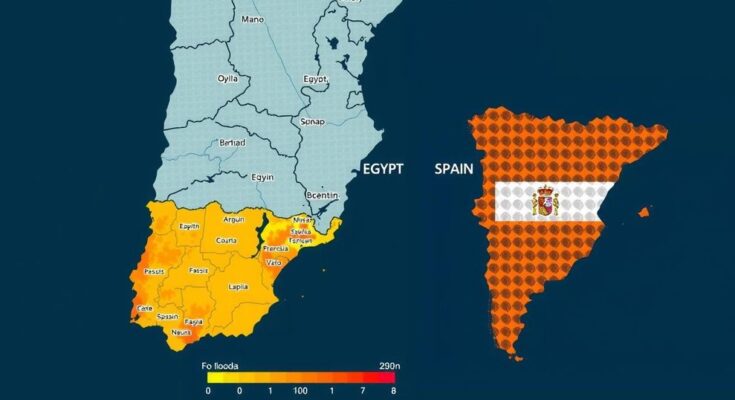The IMF pledged its support for Egypt’s economic reforms and reviewed its financing needs, while also assessing the impact of floods in Spain and the economic stabilization efforts in Argentina, where progress has been noted in inflation reduction and fiscal surpluses.
On September 12, the International Monetary Fund (IMF) announced its ongoing commitment to assisting Egypt in navigating its economic challenges. Following the conclusion of a mission’s visit to Egypt, significant progress was made in policy discussions toward the fourth review of the IMF loan program, which aims to unlock over $1.2 billion in financing. IMF spokesperson Julie Kozack highlighted Egypt’s implementation of key reforms aimed at preserving macroeconomic stability despite regional tensions and a challenging economic outlook for the country.
The IMF also extended condolences to Spain concerning the devastating floods, estimating that the economic impact would be relatively localized with limited damage to infrastructure and industry, suggesting minimal effects on overall growth. In January, the IMF plans to provide an update on the World Economic Outlook. Additionally, the economic situation in Argentina is reportedly stabilizing after a contraction this year. The Argentine authorities are exploring a new arrangement concerning their $44 billion loan with the IMF, as they continue to implement a stabilization program that has fostered significant improvements in inflation rates and fiscal surpluses.
Overall, the IMF’s role remains crucial in supporting these nations as they undertake necessary policies and reforms to enhance their economic resilience and stability amidst various challenges they face.
The International Monetary Fund (IMF) plays a pivotal role in supporting countries that require financial assistance and policy guidance. Recently, the IMF has been actively engaged in discussions with Egypt, Spain, and Argentina regarding their economic conditions and reform efforts. In the case of Egypt, the IMF continues to assess the country’s commitment to fiscal reforms aimed at achieving macroeconomic stability, especially in the wake of high inflation and foreign currency shortages. Spain is dealing with the aftermath of severe floods that have raised concerns about infrastructure, while Argentina is exploring strategies to manage its significant debt obligations and improve economic conditions following a contraction.
In summary, the IMF is deeply interconnected with the economic welfare of Egypt, Spain, and Argentina. The Fund supports Egypt’s reform efforts amidst challenging circumstances, assesses the localized economic impacts of flooding in Spain, and works closely with Argentina to stabilize its economy while addressing debt issues. The ongoing dialogue and commitment of the IMF signify its role as a vital partner in navigating economic challenges.
Original Source: mediacenter.imf.org




